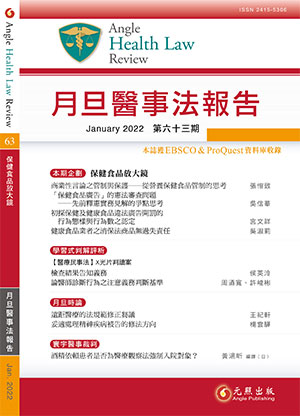「危險性行為」之刑罰檢討──愛滋防治及權益保障條例第21條之修法建議【醫法新論】 試閱
A Study of Taiwan's Implementation of the HIV Infection Control and Patient Rights Protection Act 21
人類免疫缺乏病毒傳染防治及感染者權益保障條例第21條最初於立法時針對愛滋帶原者之性行為為一定限制,以期杜絕愛滋病毒傳染。但近年科學研究證實,若愛滋帶原者體內病毒量減低到無法偵測程度,即不會傳染,因此對於本條例關於危險性行為之罰則應加以檢討。本文先行檢視本條例關於危險性行為之刑罰規定,發現構成要件相關既、未遂之規定確實有不妥之處,故同時提出修正建議,以期維護愛滋帶原者之權益。
Article 21 of the HIV Infection Control and Patient Rights Protection Act (HIV Act) was originally enacted to restrict the sexual behavior of HIV positive people to eliminating HIV transmission. However, scientific studies have confirmed in recent years that HIV virus can be controlled through drugs, and if the amount of virus reduce to an undetectable level, the HIV transmission does not occur, so the HIV Act should keep pace with the times, otherwise there is a risk of excessive restrictions on the human rights of those HIV positive people. This paper first examines the the definition of unsafe sex, and finds that it’s not proper to comprise the element of “Individuals who are fully aware that they are the infected,” so this paper also proposes suggestions for future amendments.
144-160






